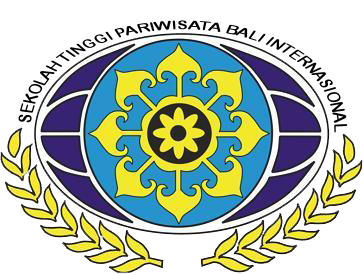PENGARUH MUTU PELAYANAN PERPAJAKAN DAN KEPUASAN WAJIB PAJAK TERHADAP KEPATUHAN WAJIB PAJAKPADA SISTEM E-FILING PERPAJAKAN DI INDONESIA
Abstract
This study is intended to determine the effect of the tax service quality and satisfaction of taxpayers on tax compliance within the individual educational foundation noble mother. This study uses quantitative analytical research method, where the data obtained through the distribution of questionnaires to individual taxpayers in the environment of Bunda Mulia education foundation in Jakarta. Data obtained then processed by using software SPSS 23. The results of this study indicate the existence of: (a) positive and significant relationship between the qualities of tax service tax officer (tax) to the taxpayer compliance of individuals; (b) a positive and significant relationship between the satisfactions of individual taxpayers on individual taxpayer compliance.The results represent that the quality of tax services provided by tax officials (tax authorities) have a positive effect on taxpayer compliance of individuals on the system of e-filing taxation in Indonesia. In addition, the level of personal taxpayer satisfaction in the noble education foundation also has a positive and significant impact on the taxpayer compliance of individuals on the tax e-filing system in Indonesia. This research has contributed in assisting and supporting the implementation of e-filing system organized by the Ministry of Finance of the Republic of Indonesia, especially the Directorate General of Taxation.
Keywords: quality of tax service, taxpayers satisfaction, taxpayer compliance, personal taxpayers,e-filing system of Indonesian taxation.
Full Text:
PDFReferences
Afridi, S.A. and Khattak, A. (2013). Impact of Trust on Customer Advocacy: A Study Regarding Health Sector of Peshawar. Abasyn Journal of Social Sciencies, 8 (2), 355-362.
Amin, M. (2016). Model Dinamika Penerapan E-Government dengan pendekatan Darcy (Kasus Kementrian Koordinator Perekonomian, Kementerian Keuangan, dan Kementerian Riset, Teknologi, dan Pendidikan Tinggi). diaksespada tanggal 01 Juli 2017, dari http://www.ui.ac.id/berita/dinamika-penerapan-e-government-di -indonesia.html.
Anderson, E. and Srinivasan, S. S. (2003). E-Satification and E-Layalty: A Contingency Framework. Psychology and Marketing Journal, 20 (2), 123-138.
Ayo, C.K., Oni, A. A., Adewoye, O.J., and Eweoya, I. O. (2016). E-banking users’ behavior: e-service quality, attitude, and customer satisfication. International Journal of Banking Marketing, 34 (3), 347-367.
Carter, L. and Belanger, F. (2005). The Utilizations of e-government services: citizen trust, innovation and acceptance factors. Information Systems Journal, 15 (1), 2-25.
Chen, M. and Qi, X. (2015). Members’ satification and continuances intention: a sociotechnical perspective. Industrial Management and Data Systems, 115 (6), 1132-1150.
Fang, Y. H., Chiu, C. M., and Wang, E. T. G. (2011). Understanding customers’ satification and repurchase intentions: An integration of IS success model, trust, and justice. Internet Research, 21 (4), 479-503.
Fang, Z. (2002). E-Government in digital era: concept, practice, and development. International Journal of the Computer, the Internet and Management, 10 (2), 1-22
Desmayanti, E. dan Zulaikha. 2012. Faktor-faktor yang Mempengaruhi Penggunaan Fasilitas e-Filling oleh Wajib Pajak sebagai Sarana Penyampaian SPT Masa secara onlinedan realtime.Diponegoro Journal of Accounting, 1 (1), 1-12.
Direktorat Jenderal Pajak Kementrian Keuangan.(2017).DJP dan PKP Siap Melaksanakan E-Faktur. Diakses pada tanggal 10 Februari 2017,dari ”http://www.pajak.go.id/content/article/djp-dan-pkp-siap-melaksanakan-e-faktur
Direktorat Jenderal Pajak Kementrian Keuangan. (2017). E-SPT.Diakses pada tanggal 10 Februari 2017,dari http://www.pajak.go.id/e-spt.
Direktorat Jenderal Pajak Kementrian Keuangan. (2017).Mudahnya Pelaporan Pajak melalui e-Filing. Diakses pada tanggal 10 Februari 2017, dari http://www.pajak.go.id/content/mudahnya-pelaporan-pajak-melalui-e-filing.
Direktorat Jenderal Pajak Kementrian Keuangan. Pendaftaran NPWP Online (e-Registration).Diakses pada tanggal 10 Februari 2017, dari http://www.pajak.go.id/content/pendaftaran-npwp-online-e-registration
Direktorat Jenderal Pajak Kementrian Keuangan. (2017).Sistem Pembayaran Pajak Secara Elektronik (Billing System). Diakses pada tanggal 10 Februati 2017, dari http://www.pajak.go.id/content/billing-system.
Direktorat Jenderal Pajak Kementrian Keuangan. (2017). Undang-Undang Republik Indonesia Nomor 6 tahun 2009 tentang Ketentuan Umum dan Tata Cara Perpajakan.
Fasmi, L. dan Misra, F. (2012) Pengaruh Modernisasi Sistem Administrasi Perpajakan Terhadap Tingkat Kepatuhan Pengusaha Kena Pajak di Kantor Pelayanan Pajak (KPP) Pratama Padang.Jurnal Simposium Nasional Akuntansi 15.
Hair, J. F., Black, W. C., and Babin, B.J. (2013). Multivariate Data Analysis: A global perspective. (7th edition). United Kingdom: Pearson Education.
Harrisson, W. (2001). The measurement of word-of-mouth communication and an investigation of service quality and customer commitment as potential antecedents. Journal of Service Research, Vol.4 (1), pp.60-75.
Hartono, J. (2013). Metodologi Penelitian Bisnis: Salah Kaprah dan Pengalaman-Pengalaman. Edisi 6. Yogyakarta: Fakultas Ekonomika dan Bisnis UGM.
Laihad, Risal C. Y. (2013). “Pengaruh Perilaku Wajib Pajak terhadap Penggunaan e-Filling Wajib Pajak di Kota Manado.” Jurnal EMBA, volume 1, no.3. pp. 44-51.
Lie, I. dan Sadjiarto, A.(2013). Faktor-Faktor Yang Mempengaruhi Minat Perilaku Wajib Pajak Untuk Menggunakan e-Filing. Tax & Accounting Review, 3 (2), 1-15.
Lingga, I. S. (2012). “Pengaruh Penerapan e-SPT Terhadap Efisiensi Pemrosesan Data Perpajakan.” Jurnal Akuntansi, 4 (2), 101-114.
Papadomichelaki, X. and Mentzas, G. (2012). E-GovQual: A multiple-item scale for assessing E-Government Service Quality. Government Information Quarterly, Vol. 29 (1), 98-109.
Priyatno, Duwi. (2016). SPSS Handbook: Analisis Data, Olah Data, & Penyelesaian Kasus-Kasus Statistik. Jakarta: PT Buku Seru.
Rahayu, S. dan Lingga, I.S. (2009). Pengaruh Modernisasi Sistem Administrasi Perpajakan terhadap Kepatuhan Wajib Pajak Badan pada KPP Pratama Bandung. Jurnal Akuntansi. 1 (2), 119-138.
Richardson, G. (2006), Determinants of tax evasion: A cross-country investigation, Journal of International Accounting, Auditing and Taxation, 1 (1), 150-169.
Rusli, Y. M. (2012). The Influence of Tax Payer's Awareness, Tax Service, and Tax Morale against Tax Payment and Tax Evasion, study in Bandung city. Thesis, Universitas Kristen Maranahta, Bandung.
Sekaran, U. and Bougie, R. (2009). Research Methods for Business: A Skill Building Approach (7th Ed.). United Kingdom: Willy Son.
Shang, S (2014). Assessment of E-Government Service Quality Under User Satisfaction Orientation: The Estabilishment of E-Govqual Model. Asean Journal of Business Management, 6 (2), 111-117.
Sharma, S. k. (2015). Adoption of E-Government Services: The Role of Service Quality Dimenssions and Demographic Variabels. Tranforming Government: People, Process and Policy, 9 (2), 207-222.
Slemrod, Joel B and Marsha Blumenthal. (2006). The Income Tax Compliance Cost of Big Business. Public Finance Quarterly, 24 (14)
Suharyadi & S.H., Purwanto. (2013). Statistika: Untuk Ekonomi dan Keuangan Modern. Jakarta: Salemba Empat.
Sujarweni, V.W. (2014). Metodologi Penelitian: Lengkap, Praktis dan Mudah Dipahami. Yogyakarta: Pustaka Baru Press.
Suryabrata, S. (2014). Metodologi Penelitian. Jakarta: Rajawali Pers.
Susanta, Alhabsji, T., Idrus, M. S., and Nimran, U. (2013). The Effect of Relationship Quality on Customer Advocacy: The Mediating Role of Loyalty. IOSR Journal of Business and Management, 10 (4), 41-52
Torgler, B. and Schenaider, F. (2007). The Impact of Tax Morale and Institutional Quality on the Shadow Economy Journal, IZA DP No 2541
Torgler, B., Schaffner, M. and Schategger, C.A. (2003), Is Forgiveness Divine? A Cross- Culture Comparison of Tax Amnesties, Swiss Journal of Economics and Statistics, 139 (3), 375-396.
Waluyo. Perpajakan Indonesia. Edisi ketiga. Buku satu. Jakarta : Salemba Empat, 2015.
Wibisona, L.T dan Toly, A. A. 2014. Analisis Faktor-Faktor yang Mempengaruhi Minat Wajib Pajak dalam menggunakan e-filing di Surabaya. Tax and Accounting Review Journal, 4 (1)
Yeh, Y. P. (2013). The Impact of Customer Advocacy on Customer Perceived Value. Journal of Business and Ritail Management Research, 8 (1), 91-102.
DOI: http://dx.doi.org/10.30813/ncci.v0i0.1312
Refbacks
- There are currently no refbacks.










